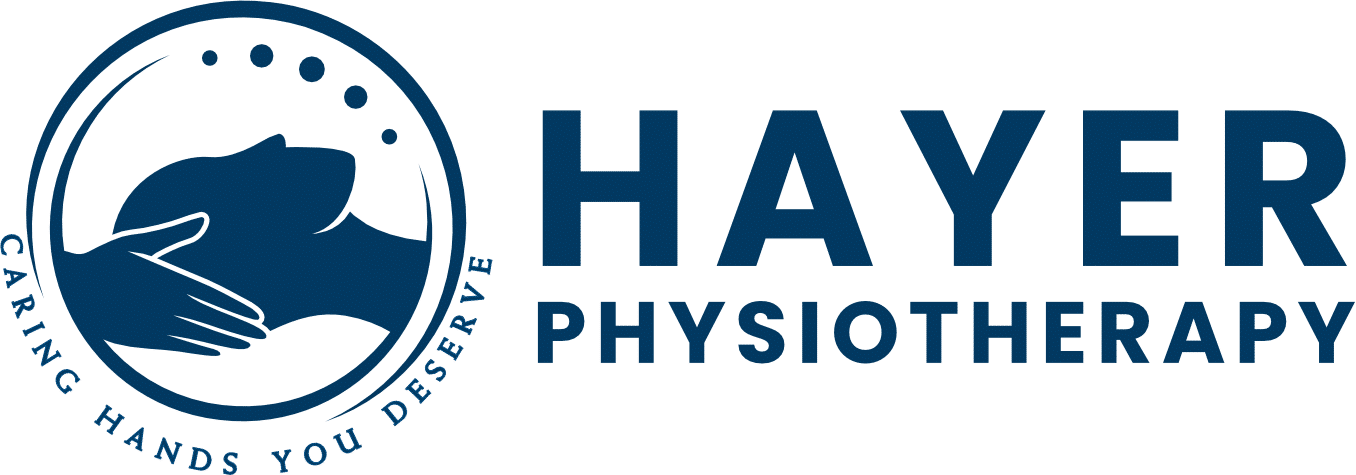What is Vestibular Rehabilitation?
Vestibular rehabilitation therapy (VRT) is a type of treatment that tries to alleviate symptoms caused by vestibular illnesses, including vertigo and dizziness, gaze instability, and/or imbalance and falls. A personalized fitness routine is developed based on the results of the clinical evaluation, laboratory and imaging tests, and patient input. The level of activity, pain, other ailments, medicines, and emotional disorders are all factors that can influence healing.
Hayer Physiotherapy will conduct a complete subjective and objective evaluation to accurately diagnose your condition and develop a treatment plan. VRT uses personalized and specialized exercises to reduce the discomfort and symptoms associated with various vestibular illnesses.
The Vestibular System: What Is It?
The vestibular system provides fast compensatory movements in response to stimuli exerted both internally and outside. The peripheral vestibular system of the inner ear acts as a small accelerometer and inertial navigation system, constantly transmitting data regarding head and body movements and positions to integrative centers in the brainstem, cerebellum, and somatic sensory cortices.
Common Causes Behind Vestibular Conditions:
• Head trauma (MVA, sports injuries);
• Aging;
• Inner ear infections;
• Certain medications;
• Stroke and brain injury;
• Certain illnesses or diseases.
Symptoms of Vertigo:
• A spinning sensation;
• Feeling off-balance;
• Nausea/vomiting;
• Blurred vision;
• Headaches;
• Difficulty focusing;
• Sensitivity to bright lights and noises;
• Falling or stumbling.
How Does Vestibular Rehabilitation Therapy Work with Hayer Physiotherapy?
Dizziness and balance are synonymous. Vestibular rehabilitation therapy helps to control balance and other vertigo symptoms. Knowing more about the reasons for your dizziness and how your body maintains balance might help you understand how therapy works.
Dizziness
When something interferes with your sense of spatial orientation, you become dizzy. Your brain determines your body's position concerning your surroundings, often known as spatial orientation. You may have dizziness or lightheadedness as a result. Additionally, you may feel wobbly, as if your sense of balance has been compromised.
Balancing
The interaction of your sensory system and central nervous system (brain) impacts how well you feel. Your sensory system includes the following components:
Your Inner Ear's Vestibular Labyrinth
This comprises the otolith organs, which respond to movement and gravity, as well as the semicircular canals (loops), which respond when you tilt your head.
Your Vision
The impulses your eyes send to your brain indicate your body's position relative to other objects.
The Muscles, Joints, and Skin
Your tissues are under pressure while your body moves. Your tissues send information to your brain, informing it of your spatial location. Leaning back while standing, for example, causes strain on the tissues in your lower thigh and rear foot. That pressure alerts your brain to the fact that you are bending rather than standing upright.
Your central nervous system compiles this information and then instructs your body on how to maintain the balance. When your central nervous system's link is disrupted, it is unable to process information effectively. Vestibular rehabilitation therapy helps to rebuild such connections, eventually reducing your imbalance and vertigo symptoms.
Benefits of Vestibular Rehabilitation Simcoe with Hayer Physiotherapy
Seek professional counseling, tailored treatment for Vestibular Rehabilitation in Simcoe, and concentrated sessions to improve stability, reduce dizziness, and improve your quality of life. Research suggests that vestibular rehabilitation therapy is useful as it:
• Lower your chances of falling;
• Become more balanced;
• Reduce your symptoms of vertigo;
• Improve your eyesight stabilization abilities;
• Strengthen your body.
Risks Associated with Vestibular Rehabilitation Simcoe
There are no health risks linked with vestibular rehabilitation Simcoe therapy. It is always conceivable that therapy will not fully resolve your balance or vertigo issues. This is especially true if you cannot complete the routines on your own.
Initial Vestibular Rehabilitation Simcoe with Hayer Physiotherapy
Vestibular rehabilitation treatment in Simcoe frequently begins with a verbal and physical assessment.
What to Expect:
Evaluation
The physical therapist will assess your cranial nerves, eye and head movements, as well as your balance. We will also ask you about your medical history previously and the symptoms you have.
Discussion
You will discuss your symptoms, their length, and the circumstances that amplify them.
Workout program
The physical therapist will create a personalized treatment plan based on the evaluation, which will include exercises to reduce dizziness and improve balance.

.jpg?updatedAt=1706820022573)